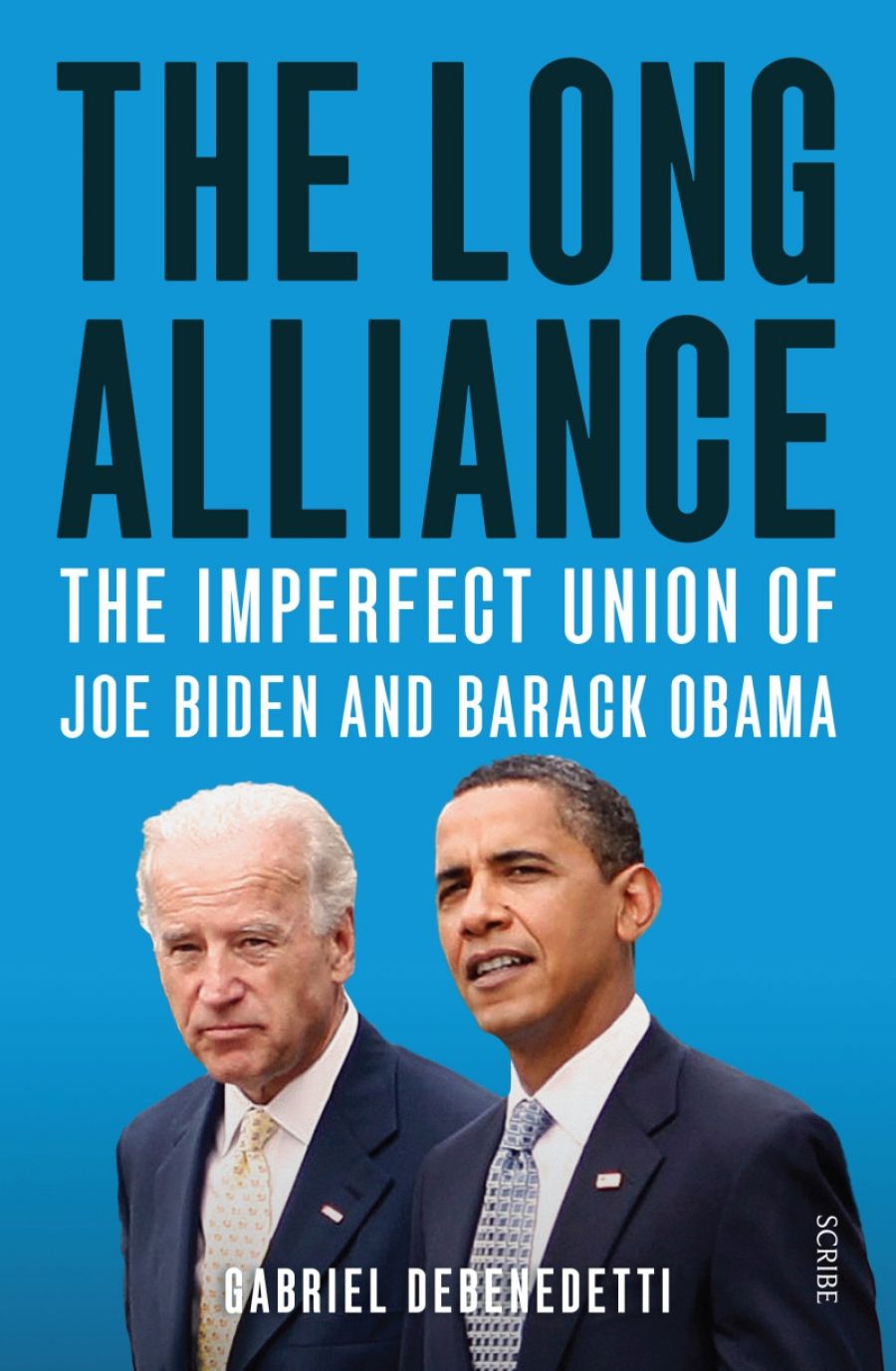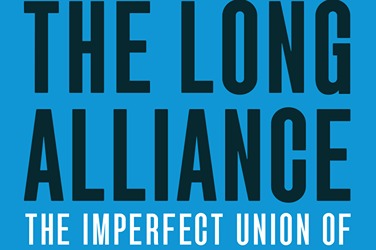
- Free Article: No
- Contents Category: Politics
- Review Article: Yes
- Article Title: Overlapping ambition
- Article Subtitle: The Biden and Obama bond
- Online Only: No
- Custom Highlight Text:
Since crossing paths nearly two decades ago, Barack Obama and Joe Biden have forged one of the more potent partnerships in modern American politics – winning three of the last four presidential elections between them – and have built an enduring friendship. It is all the more remarkable for its rarity. The pressures of the White House, overlapping ambitions, and competing loyalties have soured the relationship between most presidents and their deputies (think of Richard Nixon’s notorious bitterness towards Dwight Eisenhower or the froideur between Al Gore and Bill Clinton).
- Featured Image (400px * 250px):

- Alt Tag (Featured Image): Varun Ghosh reviews 'The Long Alliance' by Gabriel Debenedetti
- Book 1 Title: The Long Alliance
- Book 1 Subtitle: The imperfect union of Joe Biden and Barack Obama
- Book 1 Biblio: Scribe, $35 pb, 429 pp
Following Obama’s election in 2008, Vice President Biden utilised his experience and relationships on Capitol Hill to help pass the American Recovery and Reinvestment Act 2009 (a post-GFC stimulus package) and the Affordable Care Act 2010 (or Obamacare) – the administration’s flagship legislation.
Biden’s scepticism about US troop increases in Afghanistan put him out of step with many in the administration. The president, however, was appreciative: ‘Joe, I want you to say exactly what you think. I want every argument on every side to be poked hard.’ Debenedetti writes:
Years later, veterans of the administration would describe the ensuing months of debates over the future of American engagement in Afghanistan as the crucible that sealed the Obama–Biden bond and understanding. The saga forced each of them to repeatedly consider and reconsider the other’s motivations, experiences, and influences.
In addition to their working relationship, Biden’s insistence on a weekly, agenda-free lunch with Obama – one of his conditions for accepting the role of vice president– gave the president one of his few opportunities to discuss his thoughts freely on a range of subjects and made Biden feel more comfortable around the Oval Office. The two men navigated frictions with maturity and respect. While Biden’s gaffes and verbal slips would sometimes exasperate Obama, he never doubted Biden’s allegiance. For his part, Biden’s admiration for Obama was an important tonic to the condescension of the president’s staff or occasional frustrations with Obama’s failure to engage more enthusiastically with Congress.
Still, the relationship was a fundamentally unequal one. The Long Alliance repeatedly emphasises Biden’s fierce loyalty to Obama and the older man’s willingness to effectively reinvent himself around the president as essential to the strength of the bond. Obama did not make similar adjustments to Biden and did not always reciprocate that loyalty. Notably, Obama had little desire to see Biden succeed him as president in 2016. Obama (and his senior advisers David Plouffe and David Axelrod) considered that Hillary Clinton had the best chance to re-energise the Obama coalition of voters and protect the Obama legacy. As a flow of Obama’s White House and campaign staff began to migrate to the nascent Clinton campaign, Biden bristled at the prospect that Clinton was being given the inside track.
Despite grieving for his son Beau (who died of cancer in 2015), Biden had not ruled out running for president again and sensed that the political mood might favour a campaign based on economic populism and focused on the middle class. Indecision, emotional turmoil, and Obama’s implicit endorsement of the Clinton candidacy combined to keep Biden out of the race. When Donald Trump defeated Clinton (winning a number of Midwestern states that Obama–Biden had won twice), Biden’s instincts were vindicated, but this did little to diminish his frustration.
The depredations of the Trump years weighed heavily on both Obama and Biden, though in different ways. Obama could not rest easy in retirement with Trump in office. Biden felt something akin to a duty to run again. Though the events of 2015 and 2016 had strained their actual relationship, Biden’s 2020 campaign emphasised the closeness of his partnership with Obama and the achievements of their administration. As Biden’s primary campaign gained momentum, Obama began to quietly, but consequentially, support his former deputy in the Democratic primary and then openly during the general election.
The two began to speak again with increasing frequency after Biden was elected president.
The conversations were as much political therapy as they were about specific counsel … But whenever they hung up, it was clear to everyone around both of them it wasn’t an ordinary call. Each had just spoken with the only other person who could possibly begin to understand.
The Long Alliance is largely written from Biden’s perspective and is overwhelmingly sympathetic towards him. The treatment of Obama’s motivations and perspective is often superficial, and the author gives scant consideration as to how Obama truly felt about Biden. The book’s assessment thus lacks balance. Further, while Debenedetti’s descriptive style allows the reader to form their own impressions, long and rambling sentences undermine the clarity and readability of the book.
Overall, however, Debenedetti has written an engaging and thorough book about the Obama–Biden bond – an underexplored but fascinating subject. By delving into the relationship between two presidents, and suggesting reasons for its success, The Long Alliance also offers insights into how political power may be managed and shared. It is a thought-provoking book.


Comments powered by CComment